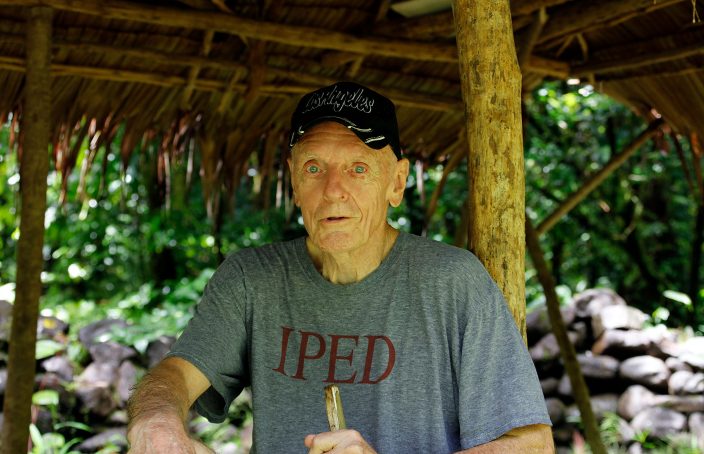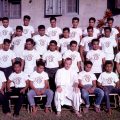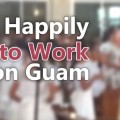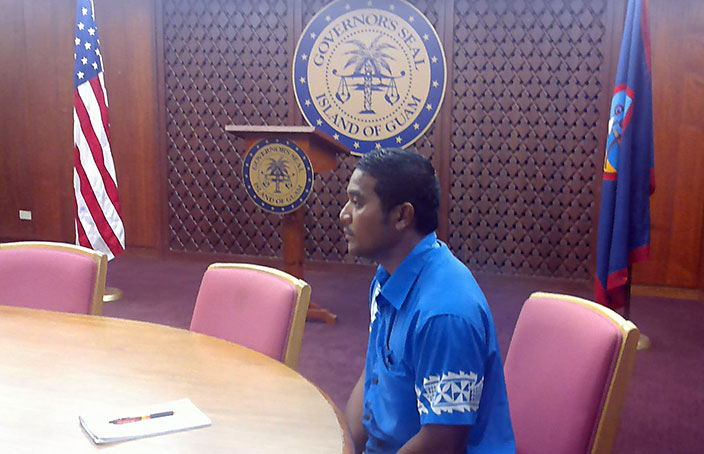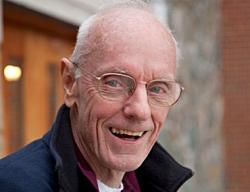Healing Hearts, Mending Divisions
Last year sometime I had just finished a short talk at a Rotary Club meeting on the film we were making on the homeless people here on the island. (The film is finished but can’t be released until this lock down is ended.) One of the men raised his hand to ask a question. “You’ve lived a long life and have done a lot. Why don’t you just settle back and enjoy retirement?”
What does he mean by that? I wondered. Is he objecting to the project? Perhaps he feels that I’m the wrong person to take on this sort of issue. My mumbled response to his question was forgettable, but his question was not. So let me try to answer it here.
When I was a young Jesuit in Chuuk (a very long time ago), I had a poster on my wall that proclaimed: The Whole World is My Parish. Not just Buffalo (my hometown). Not just New York State (my Jesuit province at that time). Not just Chuuk (my first overseas assignment). The whole world, the sign said.
I’ve always tried to take the sign at its word. But moving from place to place demands that the traveler be prepared to take people on their own terms. This means gauging cultural differences and trying to deal with them. Someone once asked me how long it took me to appreciate that Guam was culturally different from the mainland US. My reply was: about ten minutes. It’s hard to miss if you’re sitting in the education office, as I was at that time, with a group of women passing around the pugua and speaking in the friendly but cautious way that I had come to identify as “island style.”
So what do you do when you settle into a particular part of your worldwide parish? Besides saying your masses and blessing rosaries and cars, of course. Well, I always thought that a major part of the job definition was to heal hearts, and perhaps bit by bit contribute to healing the world.
But what about the big divisions that split communities? Shouldn’t they be healed also? Not just the division between political parties that everyone in the US is talking and writing about, but the local kind that have divided island people. We could start with the gap that has divided the Catholic Church over the past few years, but there are plenty of other divisions as well. By divisions here I mean not just differences of opinion on matters like political status, but rifts that reach all the way into our heart.
“Watch out! You can’t just gallop in here and try to pour balm on old wounds. That isn’t the way we handle these delicate matters in islands like this.” Is this a real voice I hear, or is it just my overworked imagination? But I am well aware of the small community tendency to keep quarrels under wraps so they don’t turn into a public war and divide the community even more deeply.
Even so, there are those hearts to be healed, hurts to be mended, and a unity to be restored. Isn’t that part of the job as we move from place to place tending to our worldwide parish? Is this something that’s too big to accomplish? Should we just drop the task, slip into the armchair, flip on the TV, and tell the world that we’ve hit retirement age?
Do grandparents retire from helping their family, especially when some no longer feel comfortable attending the family dinners?
There you are. That’s the reply I was trying to formulate in answer to that bothersome question at the Rotary Club meeting.

